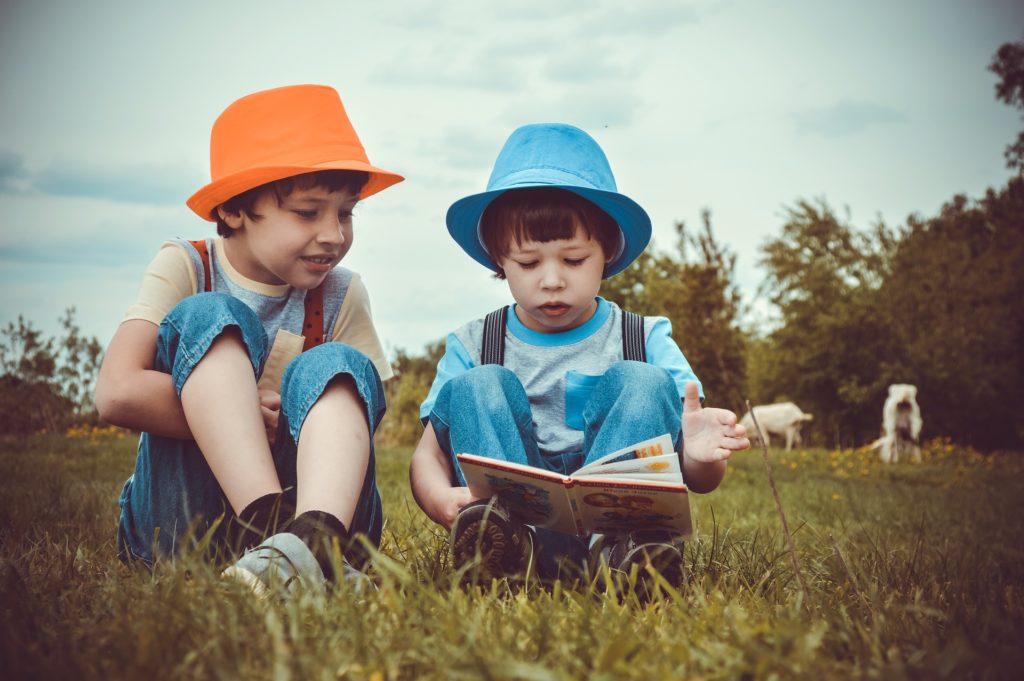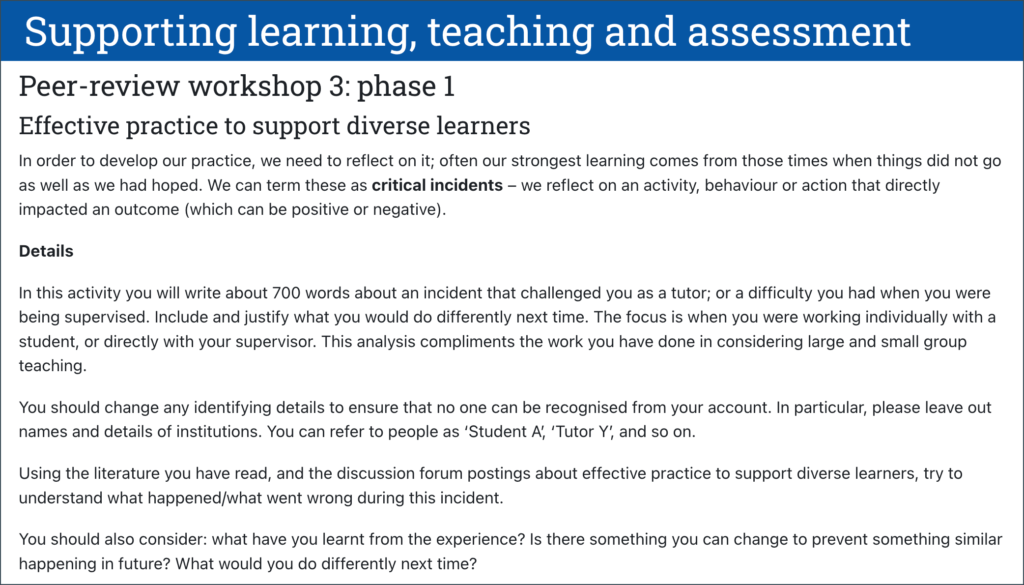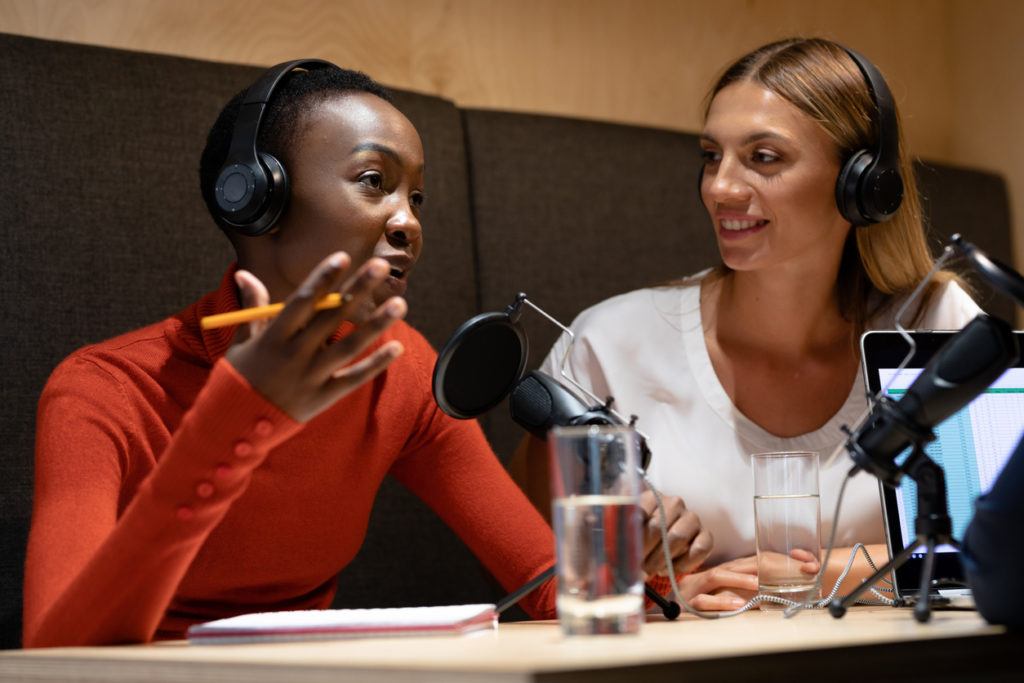
Our community of learners stretches far and wide; we have students from all over the world who bring with them an array of backgrounds, languages, cultures, traditions and stories. This means that we have the opportunity to invite those stories into our programmes to bring content to life, to encourage discussion and debate. Here I want to talk about a few ways we do this and how bringing real-life stories and experiences into education can empower learners to value their own contribution to supporting and enriching content.
How storytelling supports authentic learning
Authentic learning is about situating knowledge in the real world, using real-life scenarios to help embed that knowledge so that learners can apply it easily. In online learning, we might see this in the use of case studies or professional scenarios that prompt learners to apply knowledge to a situation they may encounter in the real world. There are lots of benefits to doing this; here, we are going to focus on the ways in which we might invite students to use their real-life experiences and stories as examples to support their learning.
How to incorporate storytelling into learning
Inviting learners to share their experiences can be simple. The key is to design activities that allow learners to draw on their real-life experiences – both personal and professional – and connect these experiences to things they are learning about. It is important to encourage discussion between peers, as the sharing of stories can inspire collaboration.
All students taking our PGCert in Learning and Teaching in Higher Education are education professionals, employed in teaching and support roles, so we ask them to apply what they are learning in their own classrooms and to reflect on their developing teaching practice. When students report back, they share rich and colourful stories of real life in the classroom or online. Through reflection and further discussion, this storytelling creates a natural and valuable authentic learning experience for our students.

Many students taking our PGCert in International Sports Management are working within the sports industry and have experiences and knowledge that can be shared with peers and tutors alike, providing a rich context for their studies. The online learning content includes videos of experts and practitioners, alongside case studies about real events, enabling learners to see the real-life reflections of people working in the field. The webinars invite discussion and debate, allowing learners to hear what is happening around the world and in different areas of the industry, and to evaluate how these might impact on their own practice.

Allow students to share stories in creative ways
We ask our students to share their stories in different spaces, allowing them to develop a variety of skills.
- Blogs: learners reflect on, and link their own experience to, key ideas in a topic and publish this to a wider audience. Writing for the public encourages students to think deeply and to take pride and care in their work.
- Presentations: bringing ideas together and presenting them in a meaningful and accessible way invites learners to consider audience, presentation, language and impact.
- Posters: using images, colour and text to create impactful work allows the student to engage with their creative side while carefully considering the message they want to convey.
- Webinars: offering a space to talk about ideas and experiences opens up networking and collaborative opportunities.
- Wikis: by collaborating on a shared resource, learners develop their critical thinking, writing and digital literacy skills, and they have the potential to produce a resource that is richer and more detailed than they might develop individually.
Encourage storytelling from local communities
Our programmes are taught online, but student study is not restricted to tasks on the computer: learners can also benefit from engaging with their local community to gather stories and new perspectives.
The MSc Global Environment and Sustainability is a new programme launching in April 2022. In this programme, an activity asks learners to interview friends and family to gain insight into extreme weather events and share these with peers. In doing so, learners can situate their learning alongside how their communities might view this same knowledge; gaining different views from those around us helps us to better understand how different topics are portrayed, written about and believed. With learners located all over the world, the stories and experiences shared build a diverse and varied picture, revealing a truly global perspective.
Our four tips for supporting authentic learning through storytelling
To summarise, bringing content to life with spaces for storytelling to support authentic learning can be managed in a variety of ways:
- Ask learners to share their experiences in a creative way; maybe a blog post, presentation or poster.
- Open spaces for learners to engage and exchange views, such as blogs or collaborative activities like wikis and webinars. These can also open the opportunity for the creation of collaborative knowledge.
- Ask learners to engage with their local community and share their ideas and perspectives on key questions.
- Incorporate input from experts or practitioners who can provide their own perspective and tell their own stories.
Hifzah Tariq, Learning Designer
